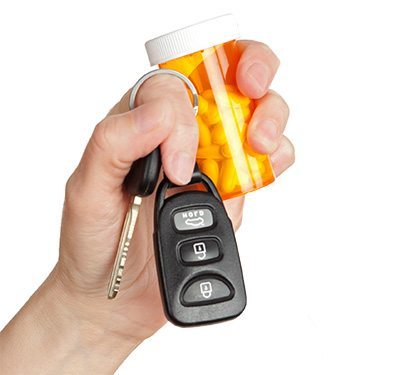Drugged Driving Facts.
All the recent concern about the legalization of marijuana and the issues of people driving while under the influence of marijuana have caused us to lose sight of immediate, and more dangerous drugged driving facts facing us today. The Tennessean newspaper reported that for the first time traffic fatalities in Tennessee caused by drugged driving surpassed traffic fatalities from alcohol use. In 2015 there were 174 people who died in crashes in which the driver either tested positive for drugs or an officer determined that drugs contributed to the crash. In comparison, in the same time period 136 people died from traffic accidents that were attributed to alcohol.
The drugs that were detected in the fatal accidents included marijuana, methamphetamines, benzodiazepines and opiates. Although the report does not give a total for each of the drugs that contributed to these deaths, anecdotal evidence suggests that marijuana is not responsible for the increase in traffic fatalities from drugged driving, but that opiates are responsible for the increase.
Here’s why we think that. In another article the Tennessean reports that in 2015, the same year that fatal accidents caused by drugged drivers surpassed those by alcohol impaired drivers, Tennessee physicians wrote 7,800,000 prescriptions for opiates (oxycodone, hydrocodone, and Percocet). That works out to 1.18 prescription for every man, woman, and child in Tennessee! As incredibly huge as that number is, that is lower than the 8,500,000 prescriptions for opiates that were prescribed in Tennessee in 2013. We’ll discuss the reasons why Tennessee physicians prescribe so many opiates in another article. For now, it’s enough to know that Tennessee is overflowing with opiates.
Most everyone is sensitized to the dangers of drunk driving as a result of efforts by MADD and other organizations and legislation that lowers the legal drunk driving limit. It turns out that the dangerously impaired driver is more likely to be impaired by drugs than alcohol, and specifically more likely to be impaired by opiates.
The issue of opiated-drugged driving raises the same issues that we discussed in a recent article about the legalization of marijuana. Is the presence of the drug in a person’s system adequate to define impairment? Or should there be a minimum level of drug in a person’s system that defines impairment? What methods will be used to test for the presence of drugs? Are the determinations of a Drug Recognition Expert adequate to define impairment? These are questions without clear cut answers that must be addressed immediately.
An interesting corollary to the Tennesseean article about drugged driving is an article in our local Knoxville News-Sentinel newspaper quoting a well-known Knoxville DUI defense attorney. He essentially warned the public that having a legal and legitimate prescription for opiates is no defense from being prosecuted for driving while impaired. Although he explicitly warned against driving while taking opiates, he also suggested that he’s ready to defend the legitimately-prescribed opiate user who is arrested for driving under the influence.

